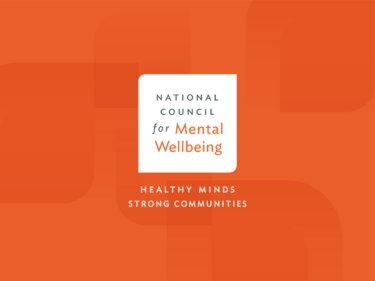BY THE NUMBERS
As many as 720,000 individuals, according to the Biden Administration, can receive extended Medicaid or Child Health Insurance Program (CHIP) coverage through the American Rescue Plan (ARP). States have the option to extend Medicaid and CHIP coverage for pregnant individuals for a full 12 months of coverage postpartum, which would include treatment services, such as substance use disorder and mental health treatment services. Thus far, Louisiana, Illinois, New Jersey, and Virginia have opted to extend authority.
*Editors Note: CapCon will not be published the week of 4/11. Enjoy NatCon22!
Main Stories:
- Congressional Committees Examine Policies and Priorities of HHS
- DOJ Issues Guidance on ADA Protections for People With OUD
- Senate Armed Services Examines Suicide Prevention and Prevention Programs in DOD
- Register for the Older Adult Mental Health Awareness Day Symposium
Congressional Committees Examine Policies and Priorities of HHS
This week, both House and Senate committees examined legislative proposals for the Department of Health and Human Services (HHS). The House Committee on Energy and Committee Subcommittee on Health examined various legislative proposals, with testimony from the Assistant Secretary for Mental Health and Substance Use, the Health Resources & Services Administration (HRSA) Administrator and a panel of stakeholders (summary). Additionally, the Senate Finance Committee discussed President Biden’s fiscal year (FY) 2023 HHS budget with Secretary Becerra. Throughout the hearing, Senators expressed bipartisan support for investments in behavioral health services and the permanence of telehealth flexibilities, including audio-only services.
DOJ Issues Guidance on ADA Protections for People With OUD
The Department of Justice (DOJ) published guidance on how the Americans with Disabilities Act (ADA) protects people with opioid use disorder (OUD) who are in treatment or recovery. Treatment and recovery include taking medication for treatment of OUD, such as medication assisted treatment (MAT) or medications for opioid use disorder (MOUD). Under the ADA, people with OUD who are in treatment or recovery are protected from discrimination in places like employment, healthcare, and participation in government services and programs. The guidance explains that while an individual in treatment or recovery from OUD has a disability under the ADA, people who are currently engaged in illegal drug use are generally not protected. Also, people currently participating in a drug treatment program, people with a record of past OUD and who no longer use illegal drugs, and people with a known association or relationship with individuals who have OUD are all protected under the ADA.
Senate Armed Services Examines Suicide Prevention Programs in DOD
The Senate Armed Services Committee Subcommittee on Personnel held a hearing this week examining suicide prevention programs in the military. Witnesses included Department of Defense (DOD) officials, experts, and stakeholders. Senators and witnesses discussed the suicide crisis in the military, highlighting the need to expand access to mental health services such as counseling. Senators agreed the workforce shortage, along with provider workload, burnout and administrative demands is having an impact on the crisis. Recently, the Secretary of Defense ordered an independent review of suicides and suicide prevention programs throughout the military, including an in-depth review of nine bases.
Register for the Older Adult Mental Health Awareness Day Symposium
The National Council on Aging (NCOA), along with the U.S. Administration for Community Living, SAMHSA, HRSA, and E4 Center of Excellence for Behavioral Health Disparities in Aging, will be holding a symposium on Older Adult Mental Health Awareness. Practitioners, professionals, and providers in mental health are invited to learn about the latest tools to improve the lives of older adults in their communities. NCOA will be offering continuing education credit for several professions. The event will be held on May 16 and is free to the public. For more information and to register, click here.
ADVOCACY CORNER
Take Action on the 9-8-8 Implementation and Parity Assistance Act. In July 2022, the National Suicide Prevention Lifeline, the nation’s main connection point to suicide prevention, mental health and substance use crisis response services, will officially transition to a new three-digit dialing code (9-8-8). Urge your legislators to support the 9-8-8 Implementation and Parity Assistance Act (H.R.7232), which provides much needed federal guidance and resources to enable states to establish their 9-8-8 systems and align crisis services ahead of July and authorizes grant funding dedicated to states for implementation of mental health and substance use parity enforcement. Will you take two minutes today to urge your legislators to invest in vital, lifesaving resources to implement 9-8-8 and crisis services across the country?
HAPPENING ON THE HILL
CMS Proposes Updates to Inpatient Psychiatric Facility Prospective Payment System
The Centers for Medicare and Medicaid Services (CMS) proposed an update to Medicare payment policies and rates for the Inpatient Psychiatric Facility Prospective Payment System (IPF PPS) for FY 2023 (fact sheet). CMS is proposing to boost payments to inpatient psychiatric facilities by a total of 1.5 percent for FY 2023. Additionally, the agency is proposing an update to the outlier threshold that would result in estimated outlier payments remaining at two percent of total payments. CMS is also proposing to establish a permanent mitigation policy that would impose a five percent cap on decreases in the IPF PPS wage index for FY 2023 and subsequent years. The proposed rule also offers technical rate setting updates, where the IPF PPS would be adjusted annually for inflation as well as other statutory factors.

